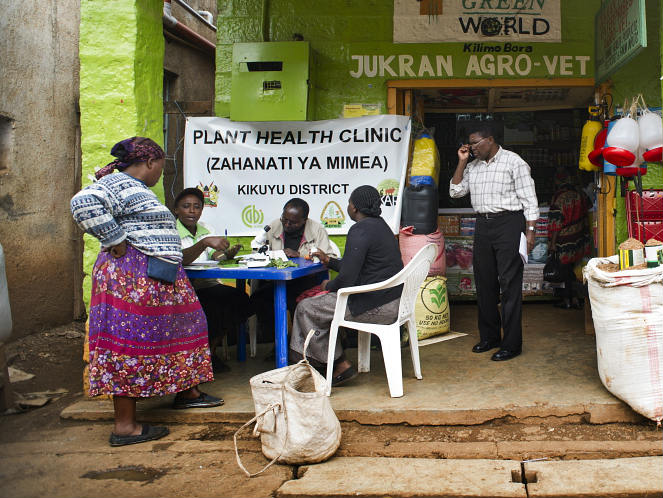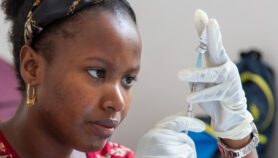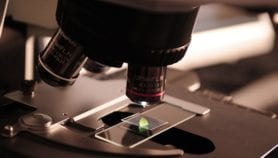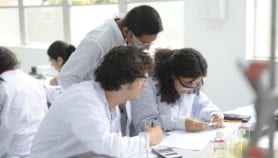By: Kaz Janowski
Send to a friend
The details you provide on this page will not be used to send unsolicited email, and will not be sold to a 3rd party. See privacy policy.
The term denigrates the knowledge underlying human activity and confuses it with the products of that knowledge.
SciDev.Net’s online debates generate high-energy bursts of communication and are as intellectually stimulating and informative as they are fun to participate in. Last month’s debate on Africa’s knowledge economy was no exception. At our London office, we experienced a flow of comments through our computer screens in a conversation enriched by six remote panellists.
The debate was hosted alongside the Planet Earth Institute (PEI), which defines the global knowledge economy as an economic environment where “knowledge-intensive activities contribute to an accelerated pace of technical and scientific advancement”.
In the run-up to the debate, we published viewpoints on the implications for intellectual property and support for Africa’s entrepreneurs. And we prepared questions to frame the debate and encourage discussion: what a knowledge economy might mean to countries across Africa; whether Africa was catching up or lagging behind other parts of the world; and, since a knowledge economy implied a drive to become more internationally competitive, how this might benefit Africa’s poorer citizens.
When the two hours of discussion were up and computers powered off, it was time for some quiet reflection. I started by wondering why, in spite of PEI’s crisp definition and a more extensive exploration in a feature article, I found ‘knowledge economy’ a difficult term to grasp.
Misleading implications
The word ‘economy’ originates from a Greek term for ‘household’ or ‘stewardship of a household’. Essentially, it refers to managing resources to benefit members of a group. ‘Knowledge’ we can take to refer to the products of mental or intellectual activity, as differentiated from the products of physical activity.
The implication of using the term knowledge economy is that, rather than physical products — be they agricultural or industrial — being managed and traded, it is the products of mental activity that are traded. The further implication is that more ‘traditional’ industries do not involve knowledge, and that physical stuff traded in those contexts are not grounded in knowledge.
“Unpacking the concept of knowledge, and understanding it more broadly than in relation to data, is central to thinking about Africa’s future.”
Kaz Janowski, SciDev.Net
But this is misleading. All resources — crops, tools and all the paraphernalia of human culture — are the product of knowledge, since they come from mental activity and ingenuity. They are grounded in individual and group knowledge, constantly developed and refined to fit different situations.
This knowledge is not only used to produce goods, it is also traded around the world — as, for example, exchange of knowledge about crop varieties or when knowledge of new tools is disseminated. This has occurred since the beginning of humankind.
The knowledge economy should not have exclusive rights over the management and trading of knowledge. Rather, it should be grounded in certain kinds of knowledge produced at higher centres of learning and related to the use of complex machines such as computers.
Advancing the data economy
This kind of confusion over what knowledge means was reflected in the debate, when those participating talked about issues related to valuing African products. It was clear that what was under discussion was physical products — from locally produced tools and appliances to foods and medicines — and not the products of higher education, namely ideas.
Because of these confusions over what knowledge represents, a different term may help. I would suggest one that has come into currency in recent years: ‘data economy’.‘Data’ — pieces of information associated with the intangible products of the computer age — is involved in all spheres of activity in the modern world. Managing and trading data is big business. It is this activity that is, I think, really meant by the term knowledge economy. The problem is that the ‘data-information-knowledge’ continuum is frequently blurred into one.
Using the term knowledge economy not only denigrates the knowledge that underlies all human activity and production by giving the word a specialised and restricted meaning, it also confuses that underlying knowledge with the stuff it produces. In agriculture, that stuff is crops; in industry, it is manufactured goods; in the modern world, it is data — intangible, but extremely valuable.
Exploitation fears
Jan Piotrowski’s scene-setting feature alludes to concerns about the implications of developing knowledge economies or data economies in Africa. Some participants in the debate, for example, voiced concern that, if Africa develops a knowledge economy, its products may be exported and exploited by outsiders, with Africans engaged only in low-level data processing jobs.
This is an important concern. We can address it, and other concerns, most effectively if the ongoing discussion builds on clear and focused terms. This also means being clear about the implications of what I am now calling the data economy, and focusing on the specific concerns and the actions needed to sidestep them, for example by fending off opportunistic companies eager to take advantage of a low-skilled and poorly paid data workforce.
More broadly, unpacking the concept of knowledge, and understanding it more broadly than in relation to data, is central to thinking about Africa’s future. The continent is rich in knowledge about agriculture, which remains — despite modern technology — the basis of human existence.
I would like to end with a quote from one debate participant, the Open Forum on Agricultural Biotechnology in Africa, which, notwithstanding the organisation’s link with this potentially controversial technology, underlines how Africans can build on and expand their existing agricultural knowledge.
“Africans embrace innovation a lot. That shows they love to grow. There is a need to sustain technologies already on ground. Let’s all support agricultural biotechnology as a promising technology for the growth and development of all Africans. Benefits: promotes food security, provides alternative sources of income, provides employment, revives the cotton industry, makes farmers rich, makes farming procedures cheaper and easier. Once rural farmers are rich enough, all Africans will get richer. The knowledge economy will achieve its aim. And all Africans will smile.”
Kaz Janowski is editor at SciDev.Net.














